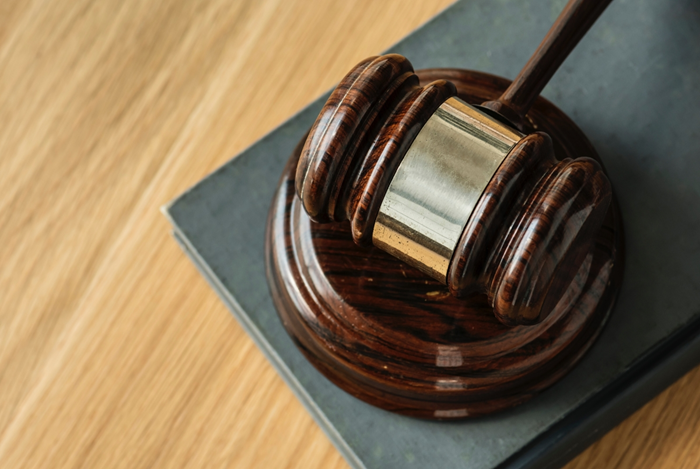
The Federal Court of Appeal (“FCA”) recently released its judgment in P.S. Knight Co. Ltd. v. Canadian Standards Association, 2018 FCA 222. The Court examined how the Crown’s rights and privileges apply in the realm of copyright law.
In good news for rights-holders, the majority found that copyright subsists in a work developed by a private organization, even when incorporated by reference into statutes and regulations. However, a strong dissenting opinion argued that the work was a part of the laws of Canada and therefore subject to Crown copyright.
It remains to be seen how the law on this subject will develop going forward.
Background
The case dealt with a claim by the Canadian Standards Association (“CSA”), a federal non-profit which develops, tests and certifies voluntary standards, that P.S. Knight Co. Ltd. (“Knight Co.”) had infringed its copyright over the 2015 CSA Electrical Code (the “Code”). The Code is a voluntary CSA document dealing with electrical safety, which has been adopted by federal, provincial and territorial governments and incorporated by reference into regulation.
In 2016, Knight Co. produced and threatened to distribute CSA’s copyrighted 2015 Code at a third of the price charged by CSA. Consequently, CSA started an application under Rules 61 and 300 of the Federal Courts Rules, and the Copyright Act (the “Act”). Both the Federal Court and the FCA rejected Knight Co.’s arguments, finding that CSA held copyright over the Code and Knight Co.’s conduct infringed upon this right.
Crown Prerogative and Copyright
Knight Co. argued that the Crown possesses copyright in the Code pursuant to section 12 of the Act, which explicitly recognizes Crown copyright in works prepared or published at the control or direction of Her Majesty or any government department. The FCA held that the Code was not prepared under the control or direction of Her Majesty or any government department, noting that the CSA is a private organization.
The Court also rejected the argument that Crown prerogative could be claimed over the Code. Crown prerogative refers to rights and privileges that can be asserted by the federal or provincial Crowns over matters falling within their respective jurisdictions. The majority held that, although a typical defendant may argue that a plaintiff does not own copyright in a work, no one may assert the rights and privileges of the Crown on the Crown’s behalf. They further commented that the Crown’s common law right to print and publish certain works of a legislative nature does not extend to works incorporated by reference into regulations, like the Code.
Webb, J.A., In Dissent
The dissent specifically disagreed on this point. Justice Webb noted that the Code has been incorporated by reference into the Canada Oil and Gas Regulations adopted under the Canada Oil and Gas Operations Act, and non-compliance with the regulations may result in serious penalties. The implications of violating the Code remained the same even if it was merely incorporated by reference. Therefore, he would have held that the Code was part of the laws of Canada, and that Crown prerogative should apply to it in its entirety.
Justice Webb added that the Reproduction of Federal Law Order allows government enactments to be copied by any person, which should extend to regulations and anything incorporated by reference therein, including the Code. On these grounds, he would have allowed Knight Co.’s appeal.
Authors
Expertise
Insights
-
Intellectual Property Litigation
CIPO Explores Fast-Tracking Patents for Innovation in Priority Sectors
Industry Minister Mélanie Joly is reportedly evaluating a proposal from the Canadian Intellectual Property Office (“CIPO”) that would accelerate patent applications in artificial intelligence… -
Intellectual Property Litigation
Rock History and Copyright: The Show Goes On
Veteran rock photographer, Neil Zlozower, reportedly sued the Rock & Roll Hall of Fame for allegedly using his copyrighted images of Eddie Van Halen in its museum exhibits without his permission… -
Intellectual Property Litigation
Patent Reinstatement Throws “Glory” Cherries in the Pits
The U.S. District Court for the Eastern District of Washington (“District Court”) reportedly reinstated the Canadian government’s patent for the “Staccato” cherry, developed by Agriculture and… -
Intellectual Property Litigation
Sportswear Brand Sues University Over Similarities in Merchandise
As reported by the Associated Press, Columbia Sportswear has sued Columbia University, claiming that the university infringed the sportswear company’s trademark and breached an agreement between the… -
Intellectual Property Litigation
Call Dropped: Verizon Cuts Deal in $175M Patent Clash
Verizon and Headwater Research LLC have reportedly agreed to settle a patent infringement lawsuit that ended with a $175 million USD jury verdict against the telecom giant. Headwater, a… -
Intellectual Property Litigation
Nintendo Secures Copyright Victory in China
In a recent copyright infringement case, the Jiangsu High Court ruled in favor of Nintendo, awarding the company approximately $28,000 USD, or 200,000 RMB, and an injunction against an unnamed…

